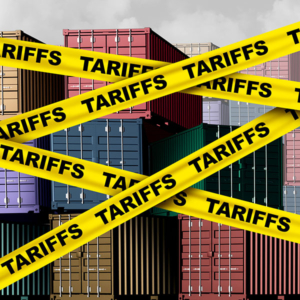
This week, Signet purchased jewelry subscription service Rocksbox for an undisclosed sum. And when I consider why, I’m reminded of the time Woot founder Matt Rutledge asked Jeff Bezos why Amazon bought his company.
“You’re the octopus that I’m having for breakfast,” Rutledge remembers Bezos saying. “When I look at the menu, you’re the thing I don’t understand, the thing I’ve never had. I must have the breakfast octopus.”
There’s something intriguing but also a little unsettling about that quote, as if we’re all guppies in Jeff Bezos’ shark tank. But while Signet is no Amazon, that might explain the thinking behind its acquisition of Rocksbox.
For Signet, Rocksbox is breakfast octopus. The subscription and rental business is an intriguing model, even if it’s not clear how big it is. (Rocksbox hasn’t released subscriber numbers.) It’s a different business than Signet has currently, but it could be integrated into its existing offerings. And it’s popular with millennials—and we know how jewelers are anxious about millennials.
Still, the two companies could be an odd pairing. Rocksbox founder Meaghan Rose (pictured) praises CEO Gina Drosos for transforming Signet into a nimble, more innovative company. She thinks the two businesses will have a great “culture fit.” Yet, for all its new trappings, Signet is still a mass-market mall jeweler based in Ohio; Rocksbox is a Silicon Valley startup. Similar odd-couple pairings—from Walmart and Jet to Macy’s and Story—haven’t quite worked.
The more immediate question is: What does Signet plan to do with Rocksbox? When I talked with Rose yesterday, she politely admitted that, yes, there are plans, but no, she can’t discuss them.
She did talk about her company in more general terms. It was founded in 2012, a year after Stitch Fix—another subscription service with a name that sort of rhymes. But unlike clothing-centered Stitch Fix, Rocksbox is based on rental. Since jewelry is durable, wearers can sport the brand’s items for months and then send them back. You wouldn’t want to do that with clothing.
Rose considers Rocksbox a part of retail’s new frontier.
“Consumers are the decision-makers today,” she says. “We’re moving from a transaction-oriented mindset to one based on relationships. It’s using data and technology to create a more personal experience.”
Yet, at their worst, those data tools can be frustratingly impersonal. I often want to yell at my Spotify “Discover Weekly” list. Unfortunately, it can’t hear me.
In Rocksbox’s case, the data seems to be doing its job. Rose notes that 70% of the brand’s users offer feedback on their shipments—and more than half its shipments convert into a sale.
“Buying is a big part of our business,” she says. “We find that people that rent the most are the people that buy the most. The more jewelry they discover, the more jewelry becomes part of how they get dressed.”
In a way, Rocksbox answers a question many of us have long had: Are there many hard-core jewelry fans out there? Rose says yes.
“[Our buyers] are obsessed with jewelry,” she says. “They won’t go to yoga classes or the grocery stores without their jewelry. There are women who just love accessories. It’s a nice way to treat yourself.”
Those consumers exist. Our industry needs to increase their numbers, and get them more engaged. That’s a challenge—but also an opportunity. Here’s hoping Rocksbox, backed by Signet, can pull it off.
(Photo courtesy of Signet Jewelers)
- Subscribe to the JCK News Daily
- Subscribe to the JCK Special Report
- Follow JCK on Instagram: @jckmagazine
- Follow JCK on X: @jckmagazine
- Follow JCK on Facebook: @jckmagazine





